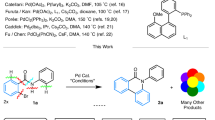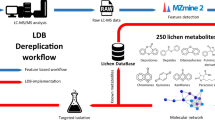Abstract
Our letter on the history of chromatography1 has been commented on inter alia by Zechmeister2, who directs attention to one of his papers3 not cited in our letter and claims that in this he has done justice to Day, whom we have described as the true discoverer of chromatography. Here, however, as in the later publication4 which we did quote, he again names Tswett as “the true inventor of chromatography in all of its important aspects”. Even in this earlier publication3, however, Zechmeister does not quote the really important paper describing Day's work in detail5, and referred to by us in our previous letter and elsewhere1,6, nor does he pass any comment on it in his letter2; nor, again, does he comment upon the paper by Engler and Albrecht7 to which we referred. Both these papers are, however, of the utmost importance. Moreover, our own further literary researches indicate that the manifold roots of chromatography must, accepting Zechmeister's own definition of chromatography4, be sought even earlier than we had supposed. It is important to notice that his definition does not include the process of development, which appears to have been Tswett's only new contribution.
This is a preview of subscription content, access via your institution
Access options
Subscribe to this journal
Receive 51 print issues and online access
$199.00 per year
only $3.90 per issue
Buy this article
- Purchase on Springer Link
- Instant access to full article PDF
Prices may be subject to local taxes which are calculated during checkout
Similar content being viewed by others
References
Weil, H., and Williams, T. I., Nature, 166, 1000 (1950).
Zechmeister, L., Nature, 167, 405 (1951).
Zechmeister, L., Ann. N. Y. Acad. Sci., 49, 145 (1948).
Zechmeister, L., “Progress in Chromatography 1938–1947” (London, 1950).
Day, D. T., Indust. Tech. Petr. Rev., 3 (1900), Supplement to the Aug. issue, p. 9.
Weil, H., Paint Technology, 14, 391, 439 (1949); Petroleum, 14, 1, 5 (1951). Parts II–VI in the press; Canad. Chem. and Process Indust. (in the press).
Engler, C., and Albrecht, E., Z. angew. Chemie, 889 (1901).
Zechmeister, L., Science, 113, 35 (1951).
Runge, F. F., “Farbenchemie”, 1 (1834), 2 (1842) and 3 (1850).
Runge, F. F., “Grundriss der Chemie”, 2 (Munich, 1848).
Feigl, F., “Chemistry of Specific, Selective and Sensitive Reactions” (New York, 1949).
Goppelsroeder, F., “Mitteilungen des Technologischen Gewerbe-museums in Wien”, Nos. 3 and 4, 86 (1888).
Yagoda, H., Indust. Enq. Chem., Anal. Edit., 9, 79 (1937).
Farradane, J., Nature, 167, 120 (1951).
Reed, L., Proc. Chem. Soc., 9, 123 (1893).
Author information
Authors and Affiliations
Rights and permissions
About this article
Cite this article
WEIL, H., WILLIAMS, T. Early History of Chromatography. Nature 167, 906–907 (1951). https://doi.org/10.1038/167906b0
Issue Date:
DOI: https://doi.org/10.1038/167906b0
This article is cited by
-
Early petroleum chemists and the beginnings of chromatography
Chromatographia (1995)
-
M. S. Tswett and Chromatography
Chromatographia (1972)
-
�ber cutane Periarteriitis nodosa unter besonderer Ber�cksichtigung begleitender Leberst�rungen und der sogenannten Thrombophlebitis migrans
Archiv f�r Dermatologie und Syphilis (1955)
-
Der Ursprung der Papierchromatographie
Die Naturwissenschaften (1953)
-
The origin of column chromatography
Experientia (1952)
Comments
By submitting a comment you agree to abide by our Terms and Community Guidelines. If you find something abusive or that does not comply with our terms or guidelines please flag it as inappropriate.



